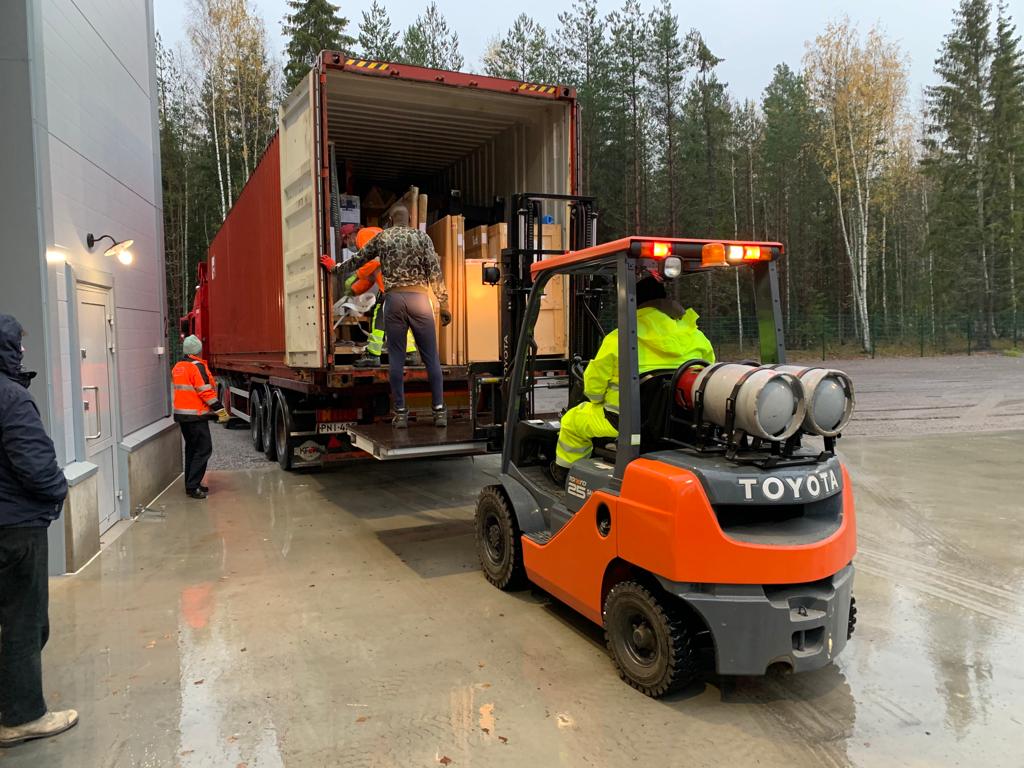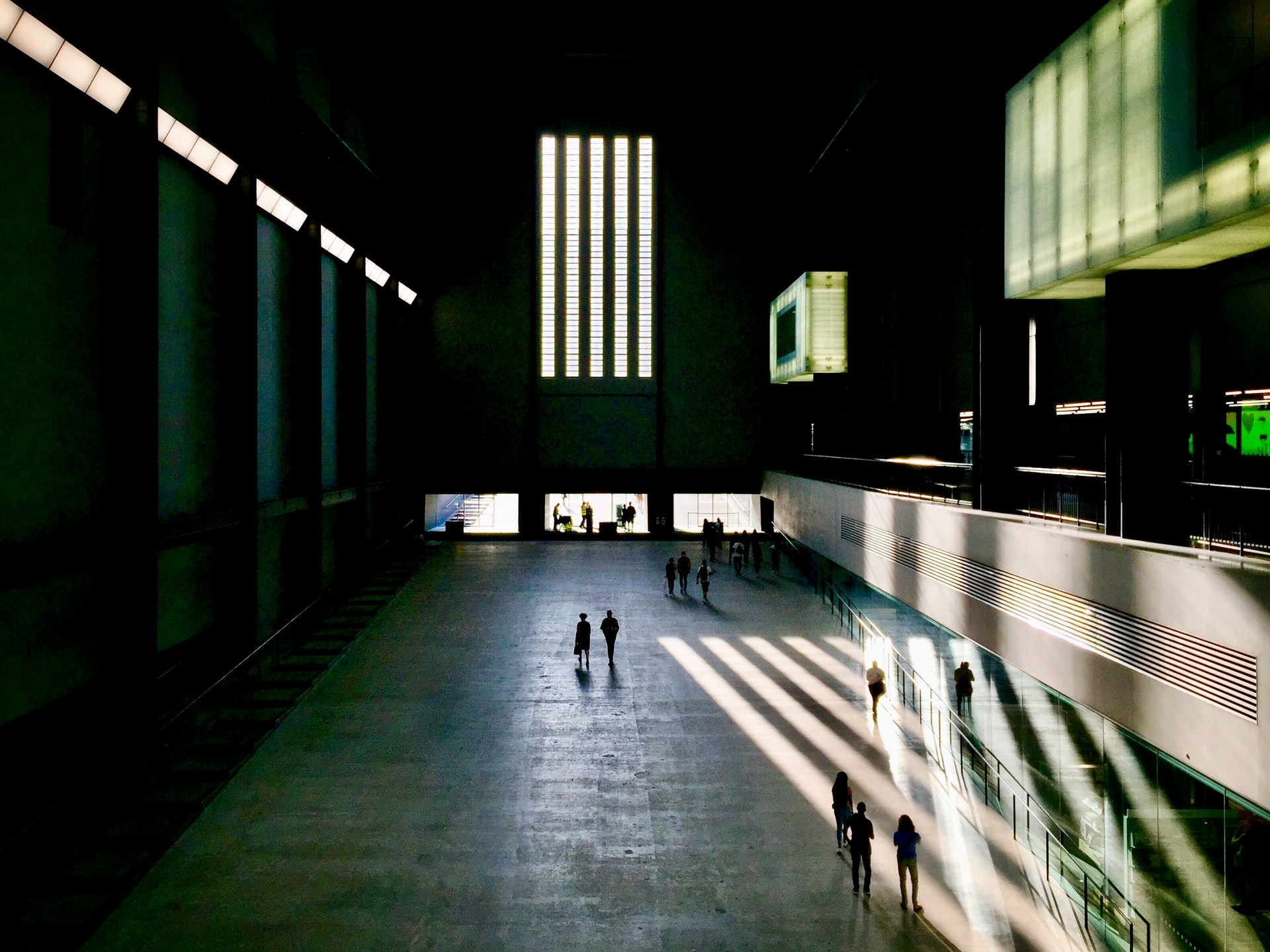Opinion: As the trusted educators of society, museums and galleries are key to keeping 1.5C alive
By Annika Erikson, CEO, Articheck | October 28, 2021
“Museums help society think,” Ben Twist of Creative Carbon Scotland said to me recently.
This simple statement gets to the heart of why culture needs a seat at the COP table. Our role as a society is to hold our leaders accountable to the agreements made to end the climate emergency. But to do this, society must be educated on the challenges, the solutions, and the plans in this ‘decade of action’ to deal with systems change on almost every level. We need to collectively get our heads around what we must do. And do it.
But systems change isn’t easy. Individually, people feel overwhelmed. That’s why museums and galleries, as the trusted educators of society, are a key to our success. They can help with the monumental task of communicating climate emergency plans, challenges and success stories. But museums and galleries will need to transition to more sustainable practices themselves in order to maintain that trusted position, and advocate for sustainable practices effectively.
For most arts organizations, the largest chunks of the carbon footprint are from staff travel, shipping of artwork, and buildings. Most arts organisations have only just started to think about calculating their carbon footprint, and further research and software development is required to gain more in-depth insights.

The Zabludowicz Collection is collaborating with Articheck to spearhead use of Sea Freight as a more sustainable method.
Let’s talk about staff travel: and particularly museum staff travel to oversee the transit of artwork personally. During Covid, in most cases, this has not been a viable option. This meant the industry was forced to improvise to oversee transit and installation remotely via adhoc tools such as Zoom and WhatsApp. However, for the long term, ad hoc tools aren’t secure enough, and it’s confusing to have to understand and conform to each institution’s selected protocols when collaborating.
This is why my company, digital art condition report tool, Articheck, decided to build a platform that allows stakeholders to easily document the key moments of risk in transit on their mobile phones. Through this, stakeholders can communicate installation and packing instructions as well as temperature and humidity sensors, so that risks to the artwork can be overseen and resolved remotely.
This solution is now being trialled in the industry, for example for a loan from the Arts Council Collection of Grayson Perry’s Tapestry The Vanity of Small Differences to the Dick Institute in Kilmarnock (about 30 min from Glasgow). For systems change to take place, governments should supply the museums they fund with this tool as a new industry standard. So far it saves on average 50 tonnes of CO2, and $50k for each project.
It’s not just freight that needs a rethink. Buildings will play a key role in decarbonizing the industry. Just one of Tate’s structures alone has the carbon footprint equivalent of 28,000 homes, (and this is after a 40% reduction) due to the heating and cooling systems being on 24 hours a day to maintain an optimal temperature and humidity level. People assume this is necessary for the art, but in fact only 5-10% of art objects need that level of care. Because of modern technology, works can be easily placed in microclimates in frames and cases. This way, the display and storage spaces museum-wide can be “relaxed” to the BIZOT Green Protocol — a broader range of acceptable temperature and relative humidity, which will provide around a 22%-34% reduction of energy usage.

Just one of Tate’s structures has the carbon footprint equivalent of 28,000 homes. Image: Unsplash/Massimo Virgilio.
These green building protocols have been around since 2008, and according to a Getty Conservation Institute study that looked into why they have not been widely adopted yet, people are afraid to be the one to turn down the dial in case of damage. We hope to help alleviate that fear by collaborating across disciplines to provide museums with training, mentors, technology, tools and an online community with social proof, and if possible, funding. This kind of accelerator program has worked well for entrepreneurs, and could probably apply to many industries that will be reluctant to make necessary changes.
The good news is the culture sector has started taking the climate crisis seriously and is working collaboratively to find solutions. More than ever before, technology is facilitating this collaboration and making complicated systems change possible. It is exciting to see these themes gaining traction in the conservative insurance sector, particularly with industry leader AXA XL Fine Art, who are spearheading new guidelines to enable Sea Freight to be more easily insured.
In order to drive real change, we will need to prioritise resources, time and funding. Sustainability lead roles, such as the V&A filled last year, are a promising step in the right direction. For other museums looking for a sustainable guiding light, Ki Culture’s Sustainability Ambassador programme is a fantastic new resource.
Covid has hit culture hard. In Glasgow where COP26 is being hosted, half of the city’s 160 cultural organizations have no plans to reopen due to financial distress. It’s time to come up with a master plan to save the arts, which allows the industry to more easily deacarbonize. And I think I’ve got an idea.
For more information, please contact me at annika@articheck.com.
Annika Erikson studied Paper Conservation at UAL, Renaissance Art History in Tuscany, and the Classics in Greece, before working in conservation and collection care at St Paul’s Cathedral, the Royal Horticultural Society, and Tate, where she got the idea in 2010 to create a mobile digital tool to streamline and create an industry standard in condition reports and conservation documentation. After opening a new conservation studio for John Jones, she became an entrepreneur and founded Articheck in 2013.



